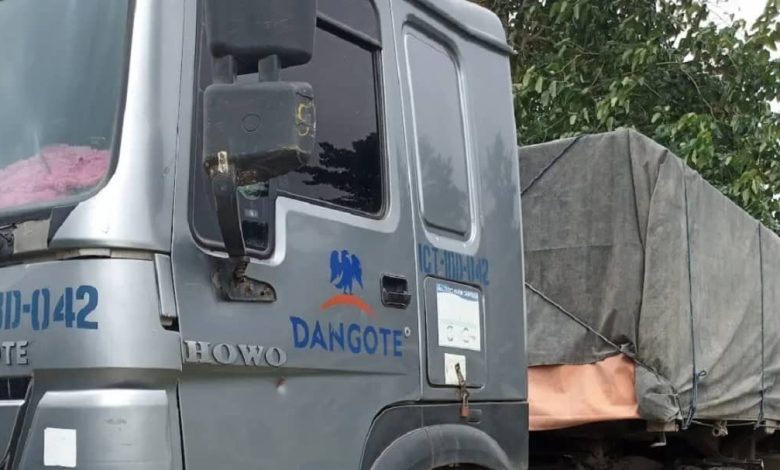
By Paul Nwosu
I am a fan of Dangote. I am also inclined to believe that most ordinary, downtrodden Nigerians are too. This admiration grew after his gigantic private refinery came on stream with the clear intent to crash fuel pump prices. What government-owned refineries could not achieve, despite the billions of naira wasted on turn-around maintenance, was what one man did.
His persecution by Mele Kyari’s NNPC and Farouk Ahmed’s NMDPRA, along with the blood-sucking independent oil marketers and importers who have exploited Nigerians for decades, even made the media and the public rally behind him. Dangote appeared as a lone warrior standing against entrenched enemies of the people.
But the recent ugly incident involving a Dangote Cement Plc truck and Ruth Otabor, just six days after her graduation from Auchi Polytechnic, has riled every right-thinking person. The matter came to public glare because her celebrity sister, BBNaija veteran Phyna Otabor, raised the alarm on social media. The uproar was immediate, and it triggered a flood of testimonies from travellers, commuters, and road users who have had fatal encounters with Dangote trucks. This writer has personally witnessed a few of these.
The reasons are not hard to deduce. Dangote’s trucks appeared to have been procured brand new, unlike the rickety imports from foreign scrap yards that are all too familiar on our roads. Some of these trucks even came with air-conditioned cabins and modern features. But it seemed the company simply drafted the old “direban tirela” (drivers of decrepit trailers) into these new machines which were bought in large quantity.
The sudden transition from steering a rickety contraption to commanding a luxury truck with power steering and comfort cabins appeared to get into these drivers heads. They began to ride roughshod over everyone else on the road. Cloaked in the aura of a powerful brand name, they seemed to believe they could get away with anything. This writer has personally seen them blast through dreaded military checkpoints without batting an eyelid. Police presence is of little concern to them.
What these drivers may not realize is that their overall principal, Aliko Dangote, is a law-abiding gentleman.
But for the Ruth Otabor accident which compelled the driver to stop and was arrested, Police wouldn’t have discovered that he has no driver’s licence, a basic requirement for operating such a heavy-duty vehicle. This damning revelation suggests a systemic problem – that many Dangote drivers may be on the roads without licences, and therefore without the proper training to handle industrial trucks. This is a huge shame on a conglomerate of Dangote Group’s stature.
In the light of what has happened, Dangote Cement’s transport managers, and indeed those across all the other subsidiaries of the Group, must urgently return to the drawing board on fleet management. This is critical because the company runs one of the largest consumer goods distribution networks in Nigeria, with trucks penetrating every corner of the country and beyond.
Aside from ensuring public safety through the responsible and professional conduct of drivers, effective fleet management is also vital for minimising damage to company vehicles, reducing repair costs, and extending their lifespan. The first step must be a structured training program, in partnership with the Federal Road Safety Corps (FRSC). Drivers should be certified, retrained, and regularly tested.
Modern drivers must also learn basic auto mechanics to troubleshoot simple faults on the road. And they must be taught what I call “Road Relations” – the courtesy, responsibility, and discipline that will make them good ambassadors of the Dangote brand instead of its public embarrassment. With their sheer numbers and constant presence on Nigerian roads, these drivers could easily become Dangote’s greatest corporate diplomats if properly guided.
Aliko Dangote has built industries that inspire hope across Africa. His refinery project won the hearts of Nigerians. But the reckless conduct of his truck drivers now threatens to break those hearts. The onus is on his management to act swiftly, by enforcing training, discipline, and accountability so that no more lives are needlessly lost. Only then can Dangote Cement trucks stop being symbols of fear on our highways and instead become proud emblems of a company that builds, not destroys.
*Sir Paul Nwosu PhD, wrote from Awka



